Art & Exhibitions
13 Must-See Museum Exhibitions in Europe This Summer, From Modernist Rediscoveries in Scandinavia to a Kusama Blockbuster in Bilbao
Plus: Picasso in Malaga, Basquiat in Riehen, Mueck in Paris, and more.

Plus: Picasso in Malaga, Basquiat in Riehen, Mueck in Paris, and more.

Daniel Jameson

By all indications, this summer will be another record-setting season for travel. With Americans’ trips alone surging 55 percent over last year—which was already a sixfold increase compared to 2021—chances are you, or someone you know, will be jetting around the continent during the next three months. No path across Europe is complete without a visit or two to its renowned art institutions, so here’s our list of the most intriguing European museum shows to have on your radar (or to share with others) while hitting the cobblestones or autobahns this summer.
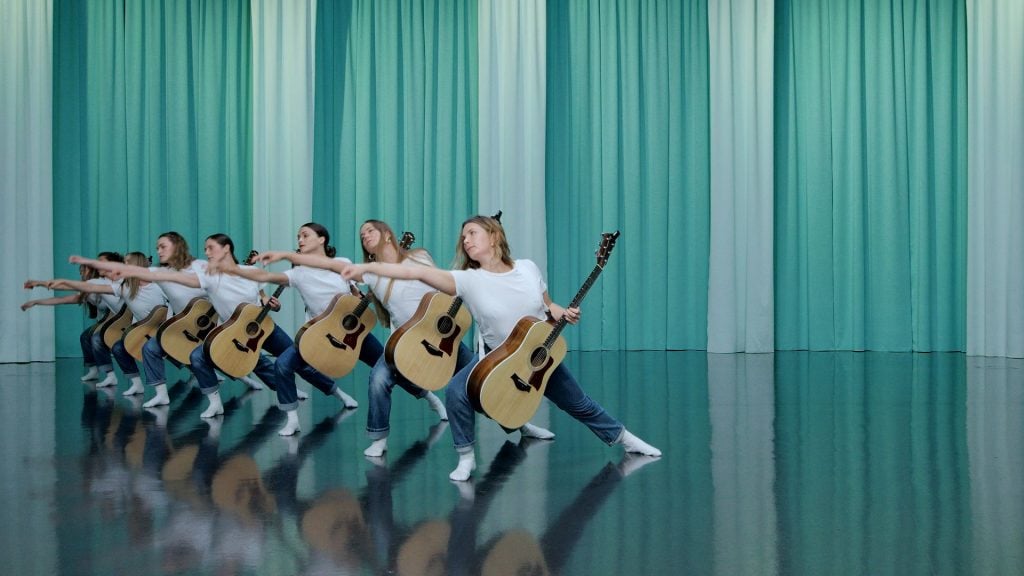
Still from Ragnar Kjartansson, No Tomorrow (2022). Courtesy of the Louisiana Museum of Modern Art, Humlebaek, Denmark.
Scandinavia’s first major retrospective of Ragnar Kjartansson presents two decades of the Icelandic contemporary artist’s creations across a multitude of mediums. Connected by an underlying pathos and irony, Kjartansson’s works tread an ambiguous line between the tragic and the comic, whether they’re commenting on how we understand ourselves, our myths, power structures, or masculine identities. In addition to popular hits such as The End (2009) and The Visitors (2012), be sure to catch entirely new projects created for Louisiana’s exhibition, including the marbled plywood monument at the main entrance and the new performance Bangemand (Scaredman).
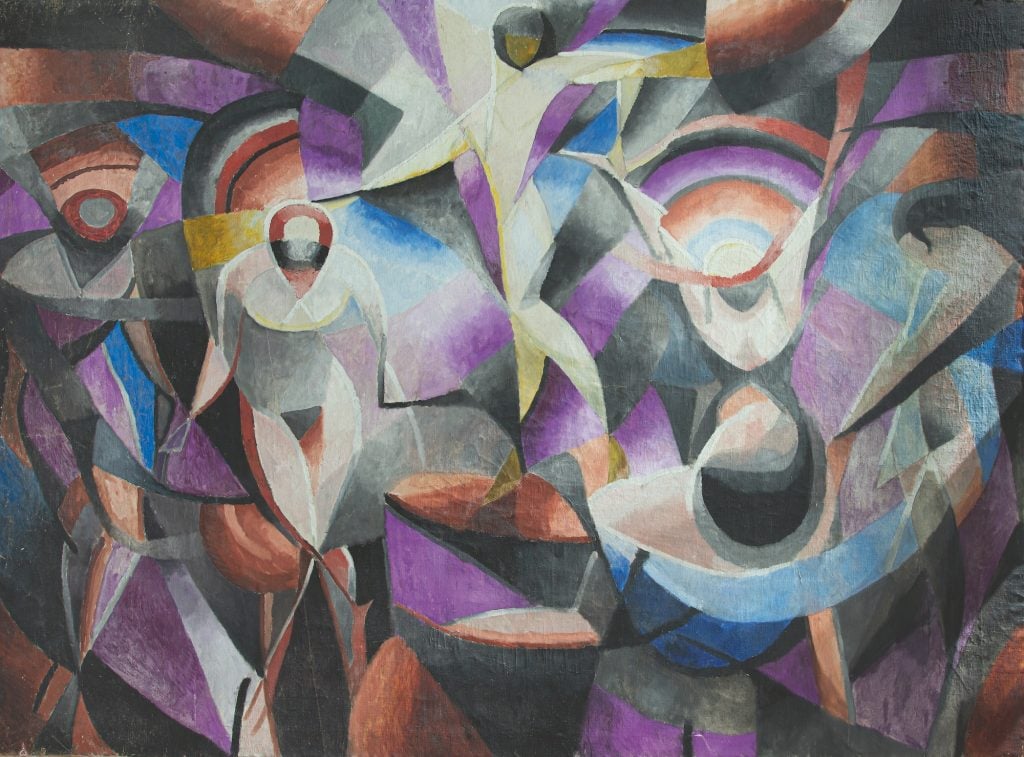
Thorvald Hellesen, Composition with dancers (ca. 1914–15). Storebrand Group.
Norway was not known as a hotbed in the development of Cubism, that mantle claimed by Paris, with Georges Braque and Pablo Picasso. But the movement’s energy percolated northward, and today, scholarship is bringing to light some fascinating minor contributors. During the heyday of his career in the 1920s, Norwegian abstract painter and designer Thorvald Hellesen received only modest recognition for his work, appreciated for the way color and form interacted in his Cubist aesthetic. Now—more than a century since his last exhibition in Norway—the National Museum in Oslo is showing the first museum retrospective devoted to his work, with about 70 paintings, gouaches, drawings, couture, and interior designs on display.
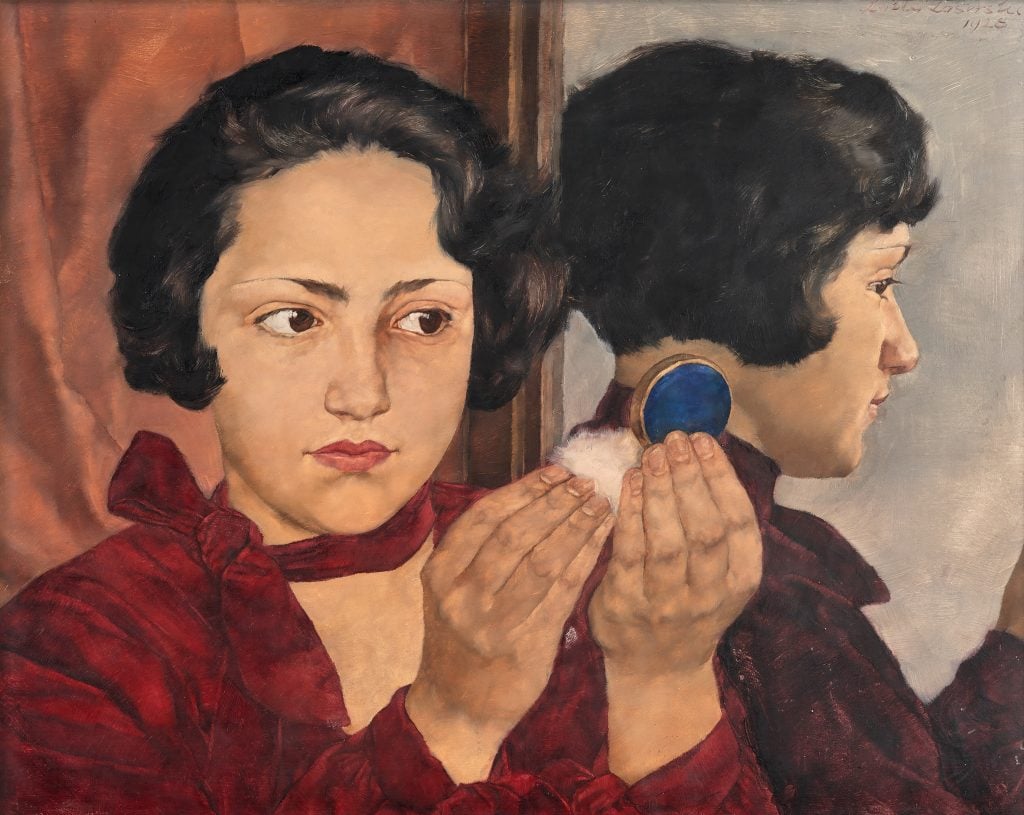
Lotte Laserstein, Russian Girl with Compact (1928). Photo: Albin Dahlström/Moderna Museet, © Lotte Laserstein Archive, Berlin.
Recent exhibitions of the rediscovered Weimar era artist Lotte Laserstein have focused primarily on her groundbreaking early works, before she was forced to leave Germany for Sweden in the late 1930s. In “A Divided Life”—the largest Nordic exhibition of Laserstein to date—the artist’s portraits of Berlin’s cosmopolitan, emancipated women are celebrated alongside her moving depictions of other emigrants, well-known figures, landscapes, and urban scenes created over five decades in Sweden. Together, Laserstein’s oeuvre on display highlights the many sides of the modern woman and reflects on how global migration reconfigures one’s sense of cultural and social milieu—topics that are particularly germane even today.
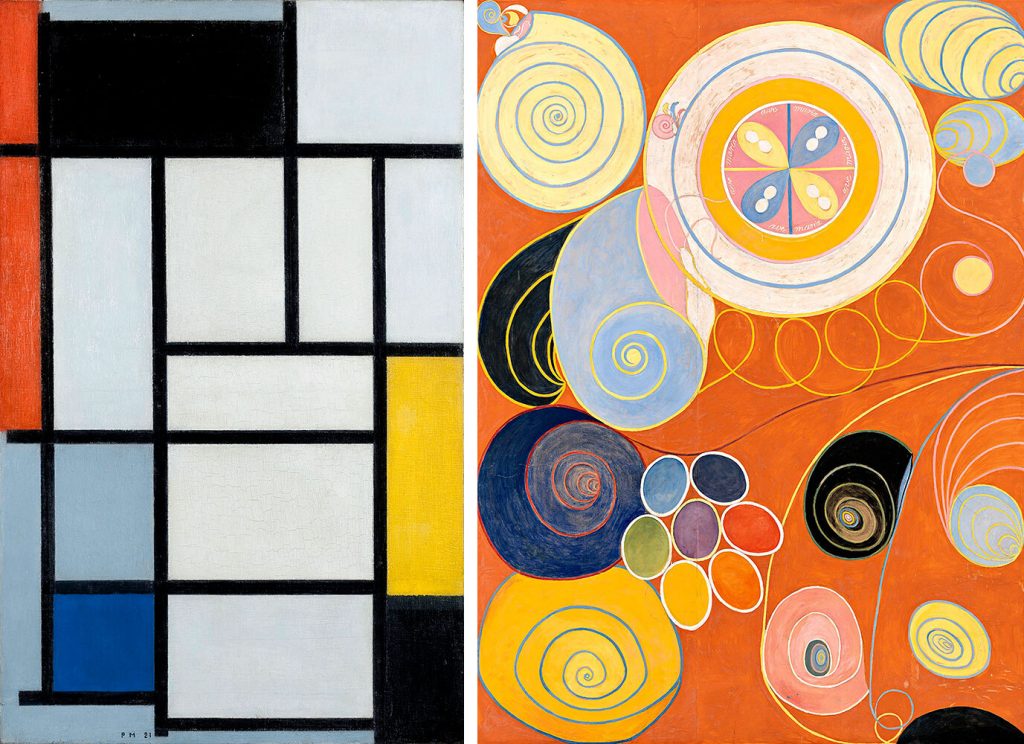
Left: Piet Mondrian, Composition with Red, Black, Yellow, Blue and Grey (1921). Courtesy of Kunstmuseum Den Haag. Right: Hilma af Klint, The Ten Largest, Group IV, No. 3, Youth (1907). Courtesy of the Hilma af Klint Foundation.
Though these two pioneers of 20th century abstract art never met, they shared the same deep connection to the natural world and a desire to understand the forces behind life on Earth. With a combined 250 works in close dialogue for the first time, this exhibition—the largest-ever Klint presentation in the U.K., and the first major U.K. show this millennium to feature Mondrian’s early work alongside his iconic grid compositions—explores how the visionary painters engaged with modern perspectives towards nature, spirituality, and mysticism in their art.
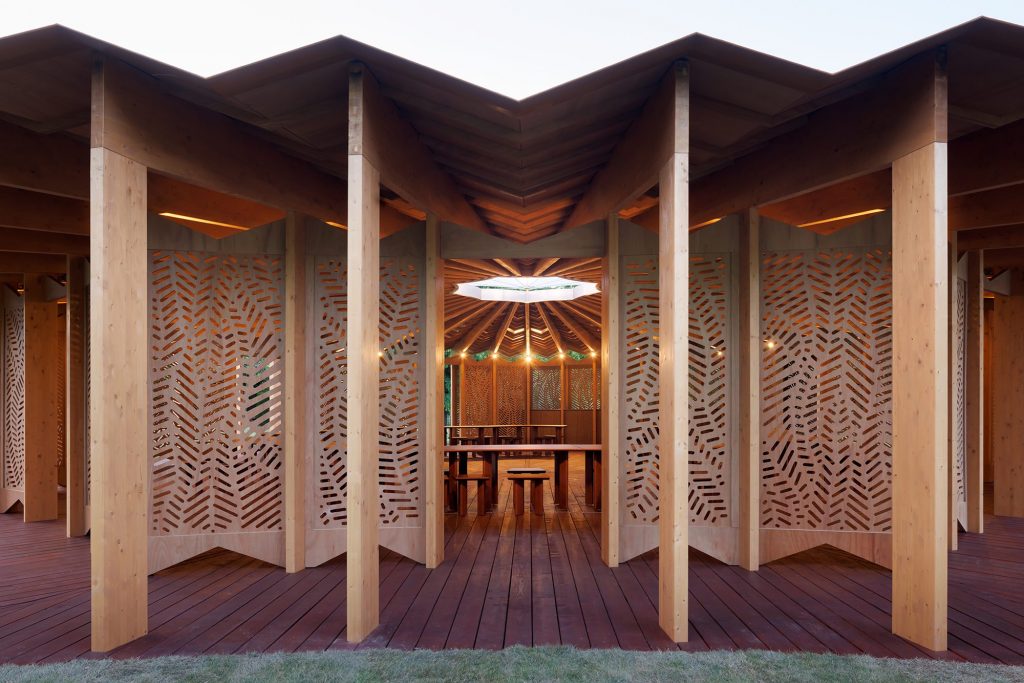
Serpentine Pavilion 2023 designed by Lina Ghotmeh. © Lina Ghotmeh—Architecture. Photo: Iwan Baan, courtesy of Serpentine Galleries.
For the first major U.K. exhibition of multimedia artist Tomás Saraceno, London’s Serpentine Gallery altered its building and operations to create a “living organism” that responds to the immediate landscape of the surrounding Kensington Gardens and daily summer weather patterns. Energy for the exhibition is derived from new solar panels on the gallery’s roof, while temperature and humidity controls inside have been turned off and some doorways opened to allow natural ventilation.
These interventions allow unique, changing interactions with the works on display both inside—including a constellation of spider webs, a film about Cameroonian spider diviners, and an installation documenting the most sustainable flight in human history—and outside, where visitors can encounter interactive sculptures from Saraceno’s Cloud Cities series. Altogether, the ambitious show seeks to inspire considerations of how we can take more responsible—and responsive—approaches to our actions in relation to other people, species, and global climate crises.
While there, be sure to check out the celebrated Serpentine Pavilion program on the grounds (through October 29, 2023); this year’s is designed by Lina Ghotmeh—Architecture. Inspired by the Paris-based architect’s Mediterranean heritage, the pavilion—titled À table, after the French call to share a meal—features a concentric table along its inner perimeter that invites us to convene and exchange.
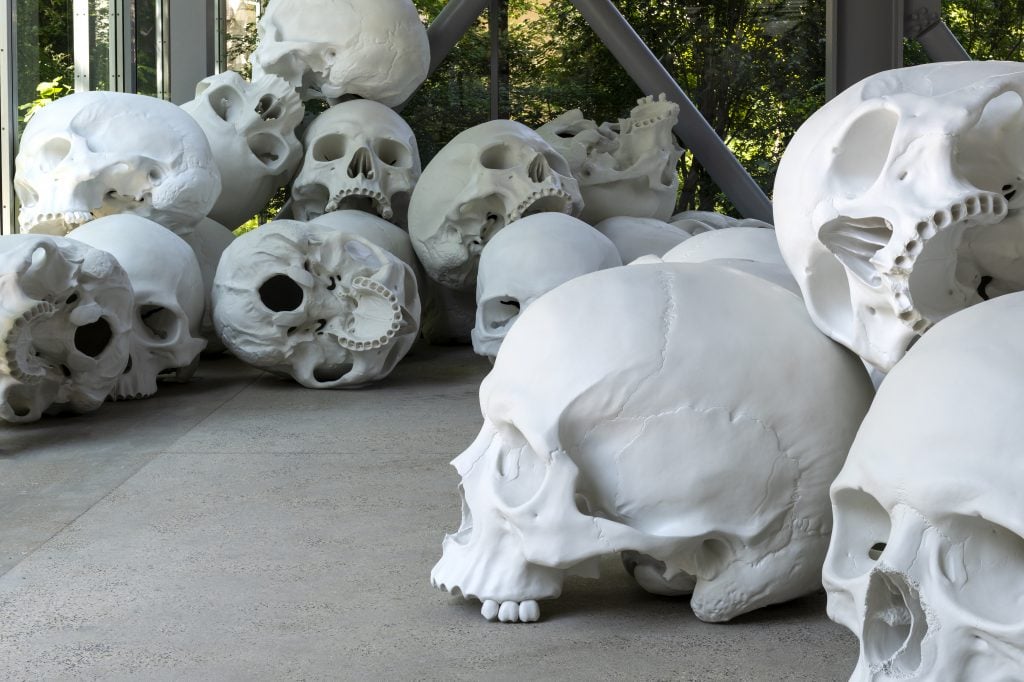
Ron Mueck, Mass (2017), installation view at the Fondation Cartier in Paris. Photo: © Marc Domage
Celebrated artist Ron Mueck’s third exhibition at the Fondation Cartier spotlights a series of sculptures never seen before in France, showcasing them alongside iconic works from his career that illustrate his signature, hyper-realistic style. With pieces ranging from Mass—a monumental installation comprised of 100 giant human skulls, presented for the first time outside of Australia—to En Garde—new sculpture created for the show that depicts a menacing group of large dogs—visitors will discover the evolution’s in Mueck’s practice since his beginnings in 1996.
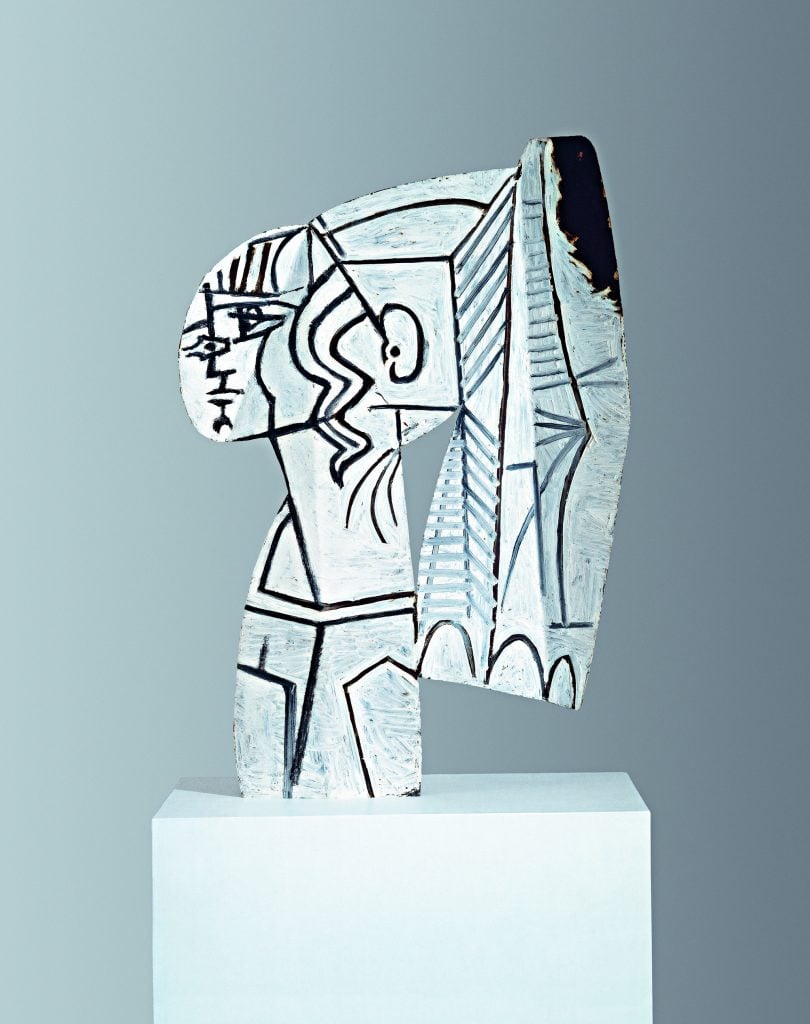
Pablo Picasso, Sylvette, Vallauris (1954). © Fondation Hubert Looser, Zurich. © Succession Pablo Picasso, VEGAP, Madrid, 2023.
For their contribution to this year’s official “Picasso Celebration 1973-2023”—an international program of 50 exhibitions and events commemorating the 50th anniversary of Pablo Picasso’s death—the Museo Picasso Málaga is presenting Spain’s first major exhibition of Picasso’s sculptures in the city where the artist was born. Though often overshadowed by his paintings, Picasso’s sculptures were not a secondary facet of his career, but a means of expression on par with all other art forms. This show will revolve around the artist’s three-dimensional representations of the human body in materials including wood, iron, plaster, cement, steel, and bronze, and will travel to the Guggenheim Museum Bilbao this autumn.
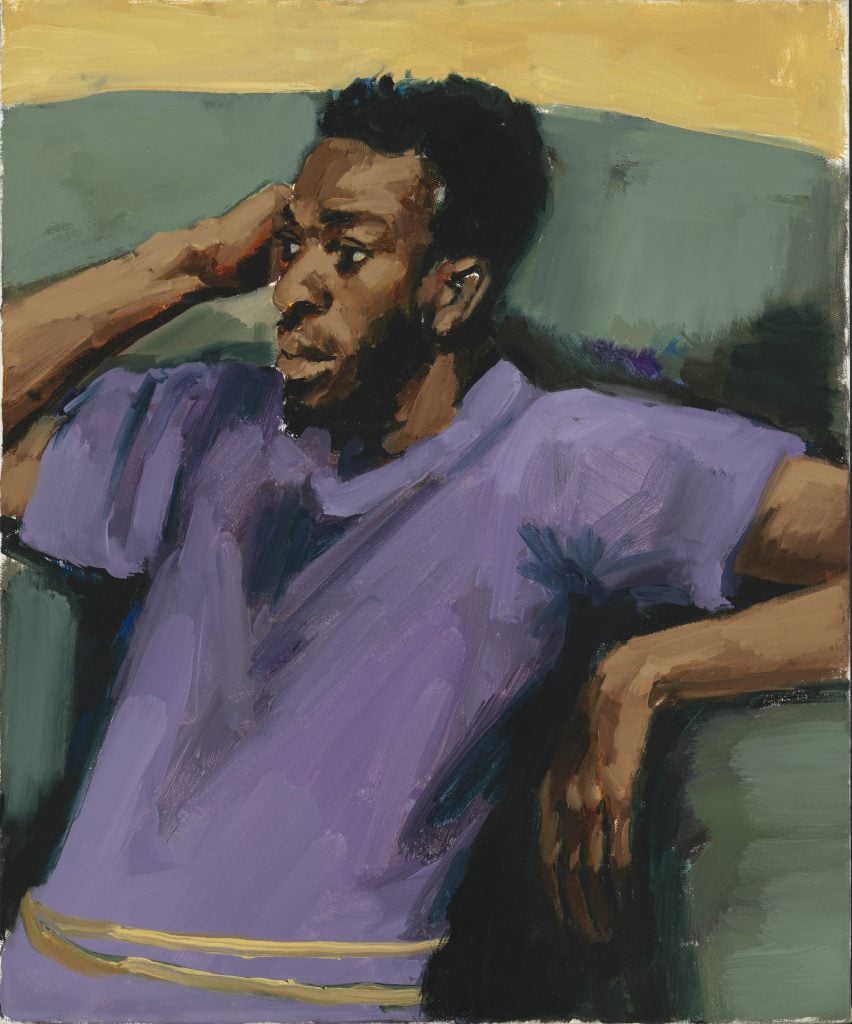
Lynette Yiadom-Boakye, Above The Heart And Below The Mind (2021). © Lynette Yiadom-Boakye, Bilbao 2023. Courtesy of the artist, Corvi-Mora, London, and Jack Shainman Gallery, New York.
The Guggenheim lifts the curtain on the most recent works by British artist and writer Lynette Yiadom-Boakye, showing for the first time more than 70 pieces she has created since 2020. In addition to her lush, evocative paintings portraying sensitively developed, fictitious characters against chiaroscuro backgrounds, there are also several charcoal drawings—notable for their intimate scale and air of improvisation—on display. While contemplating Yiadom-Boakye’s imaginary visual tales, listen to the Spotify playlist she compiled specifically for the exhibition. And before heading to the museum’s blockbuster Kusama show, stop by the Didaktika Project, a complementary exhibit in Gallery 201, to learn more about Yiadom-Boakye’s work as a writer.
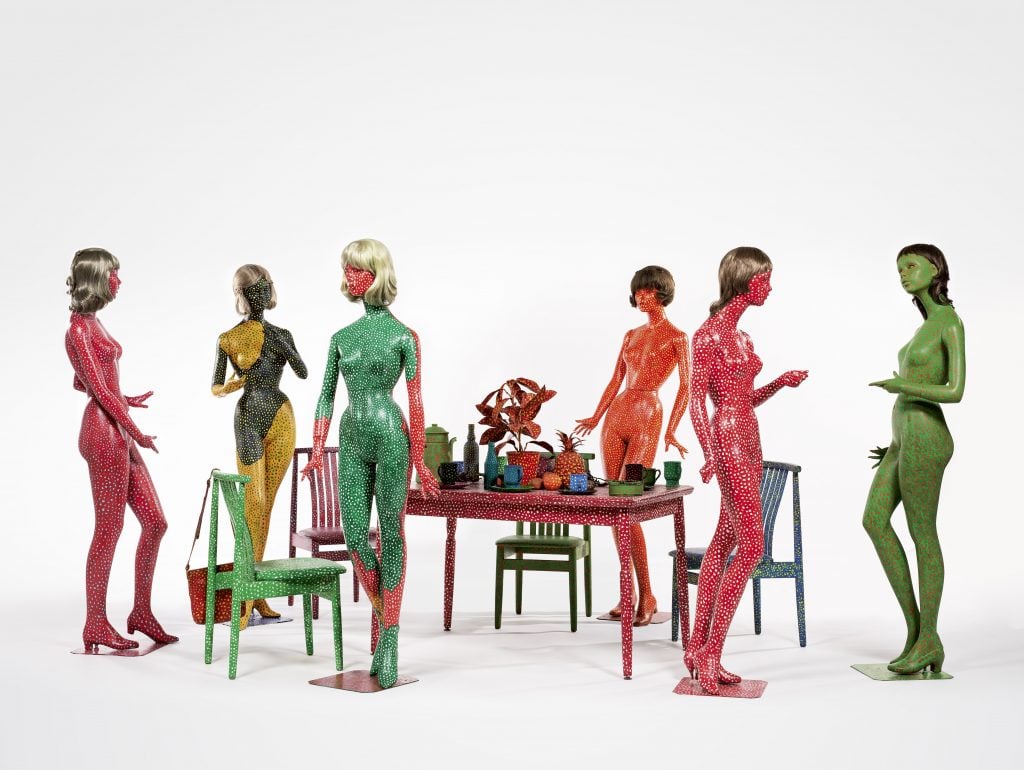
Yayoi Kusama, Self-Obliteration (1966–74). © Yayoi Kusama.
Following its highly anticipated premiere at Hong Kong’s M+ museum, this ambitious retrospective dedicated to one of contemporary art’s greatest living legends will open for the summer season at the Guggenheim Museum Bilbao. Immersing visitors in Yayoi Kusama’s obsessive, singular, and avant-garde universe, the show features 200 paintings, sculptures, performances, large-scale installations, and more spanning the artist’s extraordinary seven-decade career. With Kusama’s oeuvre grouped around central themes and questions that have guided her creative journey, there are brilliant examples of all her most iconic works on display, from polka-dotted pumpkins to a mirrored Infinity Room.
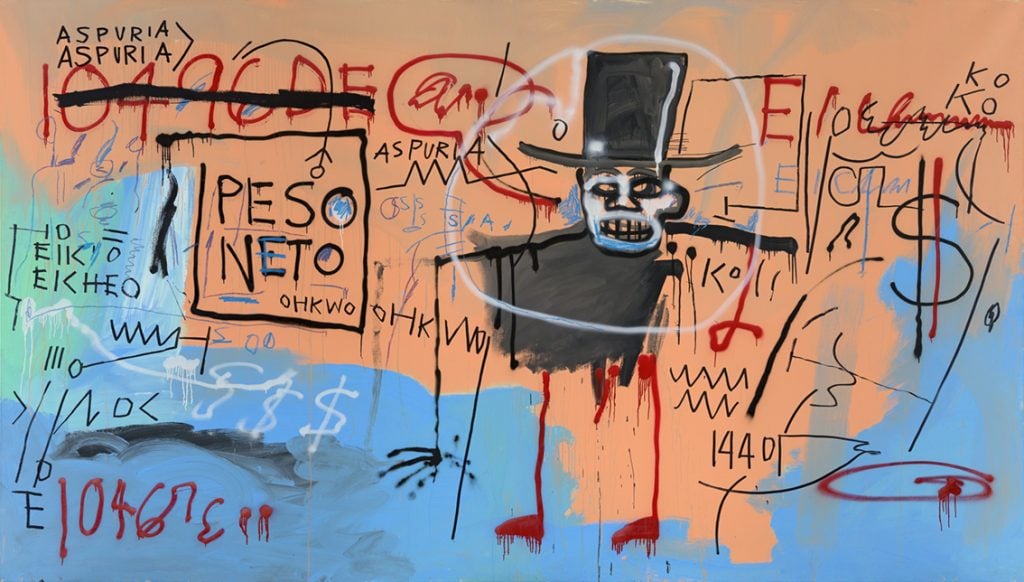
Jean-Michel Basquiat, The Guilt of Gold Teeth (1982). © Estate of Jean-Michel Basquiat. Licensed by Artestar, New York. Photo: Annik Wetter.
On a trip to Modena, Italy, in June 1982—when Jean-Michel Basquiat was just 21 yet already becoming a major star in the art world—the young artist created eight large-scale works for an exhibition that ultimately never took place. Now, more than 40 years later, the Fondation Beyeler has reunited these masterpieces for the first time, giving the public a rare opportunity to discover some Basquiat’s most significant and valuable paintings, normally hidden in private collections. Each measuring at least six-and-a-half by 13 feet, the monumental canvases tend to depict a solitary figure, sometimes accompanied by an animal—offering a more rustic perspective than anything the artist had painted until that point.
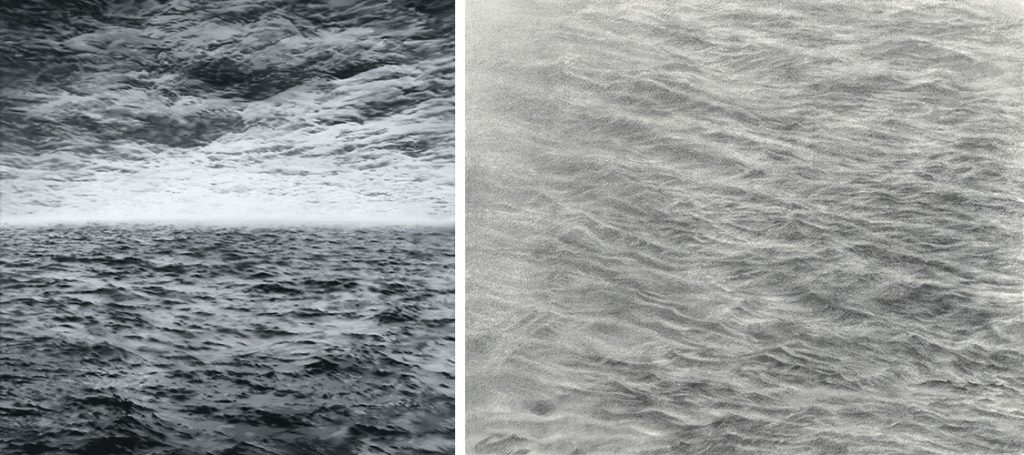
Left: Gerhard Richter Seascape (Sea-Sea) (1970). Staatliche Museen zu Berlin, Neue Nationalgalerie, © Gerhard Richter 2023. Right: Vija Celmins, Untitled (Ocean) (2014). © Vija Celmins, courtesy of Jack Shear Collection.
Bringing together for the first time the work of Vija Celmins and Gerhard Richter—two of the most internationally renowned artists of their generation—Hamburger Kunsthalle’s major double show presents a fascinating dialogue that reveals some surprising parallels between their art. Through a spectrum of 60 paintings, drawings, prints and objects, the exhibition explores how the artists have both been inspired by similar themes, used photographic templates in their work, and engaged with fundamental questions of representation and perception. In addition to raising awareness of Celmins’s oeuvre rarely shown in Europe), the juxtaposition of her strong perspective with the singularity of Richter’s work provides an opportunity to view his from a fresh vantage.
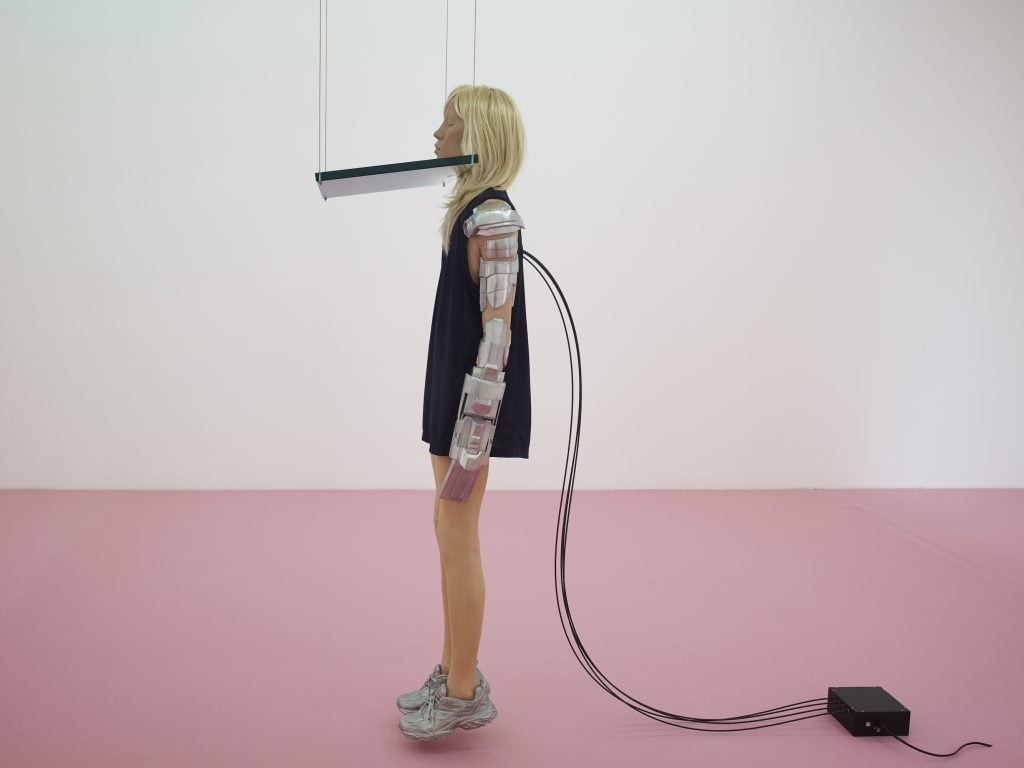
Andro Wekua, Untitled (2014), in “Dream Machines” at the Deste Foundation, Hydra. Courtesy of Deste Foundation.
Exploring the impact of technology on human imagination, mega-collector Dakis Joannou’s foundation’s summer show will present momentous works by an array of conceptual and contemporary artists, including Marcel Duchamp, Camille Henrot, Cao Fei, Urs Fischer, Pamela Rosenkranz, Jeff Koons, and Maurizio Cattelan. Taking its name from Brion Gysin’s legendary 1960s Dreammachine, the exhibition—curated by Daniel Birnbaum and Massimiliano Gioni—asks how the relentless introduction of new machines continuously alters the possibilities of artistic expression. With ChatGPT dominating headlines and ever-more realistic and compelling virtual realities on the horizon, should artists embrace or reject the exponential growth of technology in their work? Consider these ideas and more as you delve into the fascinating, and occasionally disconcerting, works.